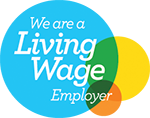
BECTU has condemned plans to increase national insurance contributions for freelancers
Posted by Sharon Elliott on 8 March 2017
8 March 2017
A plan to increase taxes on freelance workers has been condemned by BECTU, the media, entertainment, and communications sector of trade union Prospect.
Chancellor Philip Hammond announced in his budget today (8 March) that National Insurance Contributions (NIC) from self-employed workers would rise from 9% to 11%, while tax allowances for workers who are directors of their own personal service companies will be cut by 60%.
Gerry Morrissey, head of BECTU said:
"This is a slap in the face for thousands of our freelance members, who have been hit by an unfair and unjustified increase in tax. Self-employed workers will be paying almost the same employment taxes as secure staff, without employee benefits, and the security, that staff have."
For members who work through personal service companies the Dividend Allowance will be cut from £5,000 to £2,000 in 2018, which represents a significant second rise in tax, following the increase imposed when the Dividend Allowance was introduced last year.
The BECTU Sector of Prospect has repeatedly explained to HMRC that members working through PSCs are not using that business model to cut taxes, but because it is a practical way to deal with business costs, and is often now the only trading model that engagers are willing to deal with.
Harmful squeeze on freelancers
"Our freelance members are running genuine small businesses, carrying economic risk and paying many costs, without any guarantee of future work from any engager."
"Raising their taxes will squeeze their already tight margins, and harm their standard of living. This is the exact opposite of what the government claims to be doing to help entrepreneurs. There is no problem of false self-employment, or disguised employment, in our sector," Gerry Morrissey continued.
Currently self-employed workers in BECTU membership pay 9% Class 4 NIC on earnings between £8,060 and £42,355, and 2% above. Self-employed Class 4 National Insurance is now set to rise to 10% in 2018, and 11% in 2019.
Unequal treatment
Employed workers pay 12% on the same banded structure, but are entitled to a greater range of state benefits than the self-employed, and also enjoy many contractual benefits like sick pay, maternity pay, and free training, none of which are available to freelancers.
The differential between employed and self-employed NIC has long been based on the business risk, lack of guaranteed work opportunities, and the minimal range of state benefits available to freelancers.
BECTU believes that the difference is still justified, since self-employed workers in the media and entertainment industries are, in practice, excluded from the small range of state benefits available.
Universal Credit (UC), for example, places such a high degree of conditionality on claimants that anyone pursuing a freelance career in media and entertainment finds it hard to satisfy the obligation to attend Job Centre meetings and job interviews while carrying out work in their profession.
There is also a Minimum Income Floor in the UC system, which assumes that the self-employed have an income of at least 35 times the National Minimum wage per week, which excludes many from means-tested benefits.
Personal service companies
Members working through PSCs face not only an increase in tax, but an upheaval when new IR35 rules are introduced next month in the public sector, under which engagers, not the PSC, will need to judge whether the relationship is actually one of employment. An online employment status checker (see below for link) launched by HMRC last week may define many PSC workers as employees, sometimes wrongly, meaning that PAYE and NIC will be deducted from their fees.
Delay to Making Tax Digital
Away from the tax increases, freelancers will welcome a one-year delay in the introduction of a controversial HMRC scheme, Making Tax Digital, which will require freelancers and small businesses with income of more than £10,000 to keep an electronic record of all transactions, and to upload this data to HMRC every quarter. The delay, which applies to all small traders below the £83,000 VAT threshold, may allow the entertainment unions, all of whom have members affected by the change, to lobby for exemptions and simplication of the system.
Other changes
Other tax changes affecting BECTU members are the previously-announced amendment of the VAT Flat Rate Scheme, which could lead many members to de-register, and an ongoing review of HMRC's Film, TV, and Production Industry Guidelines. The VAT change will put traders with less than £1,000 a year of VAT-rated spending on items other than food, vehicles, fuel, capital goods,or services, on a flat-rate that turns them into un-paid tax collectors, and takes no account of their input VAT.
The HMRC's Film, TV and Production Industry Guidelines have not been updated since 2012, and a review has been running for nearly two years. They offer rule-of thumb guidance on the grades which should usually be treated as self-employed, and industry-specific rules for workers with very short, or very long, contracts.
BECTU has lobbied on all the tax changes known about before the Budget, and will now add freelance NICs and directors' dividend treatment to its list of campaigning issues.
Link to HMRC's employment status checker: https://www.gov.uk/guidance/check-employment-status-for-tax
Query about this article? Contact us.
Comments
Sorry, comments are not currently enabled for this post.

